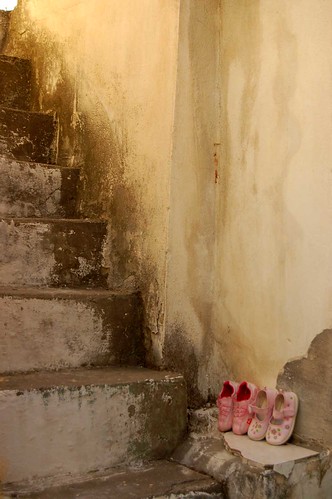Painting
Due: Dec. 22
Outline of Important Dates:
11.13 – 11.15 – Slide Review and Art History Notes
11.16 – 11.17 – Begin full size sketch, should be done by the end of class on Friday
11.20 – Sketchbook #1 Due and Paint Demo.
11.21 – Start Value Scales on watercolor paper
11.27 – Sketchbook #2 Due
12.1 – Value Scales Due by the end of class
12.4 – Sketchbook #3 Due and transfer sketch onto final surface (canvas paper)
12.4 – 12.22 – Paint!
12.22 – Finished painting is Due by the end of class
Painting
You will be using acrylic paint on canvas for this painting.
Your completed painting must include the following criteria:
Accurate rendering of architectural elements
Complementary color scheme
Focal Point
Implied texture
Obvious light source
And should or could include the following elements:
Real texture
Leading lines
Linear perspective
Repetition, Pattern, Variation,
Chiaroscuro
complementary colors - Colors that are directly opposite each other on the color wheel, such as red and green, blue and orange, and violet and yellow. When complements are mixed together they form the neutral colors of brown or gray.
focal point - The portion of an artwork's composition on which interest or attention centers. The focal point may be most interesting for any of several reasons: it may be given formal emphasis; its meaning may be controversial, incongruous, or otherwise compelling.
texture - An element of art, texture is the surface quality or "feel" of an object, its smoothness, roughness, softness, etc. Textures may be real or implied. Actual textures can be felt with the fingers, while simulated textures are suggested by an artist in the painting of different areas of a picture — often in representing drapery, metals, rocks, hair, etc. Words describing textures include: flat, smooth, shiny, glossy, glittery, velvety, feathery, soft, wet, gooey, furry, sandy, leathery , crackled, prickly, abrasive, rough, furry, bumpy, corrugated puffy, rusty, and slimy.
Light source - Also, either the sensation of light, a source of light, its illumination, the representation of it in a work of art, or an awareness as if there were light on a subject.
Chiaroscuro - A word borrowed from Italian ("light and shade" or "dark") referring to the modeling of volume by depicting light and shade by contrasting them boldly.



No comments:
Post a Comment